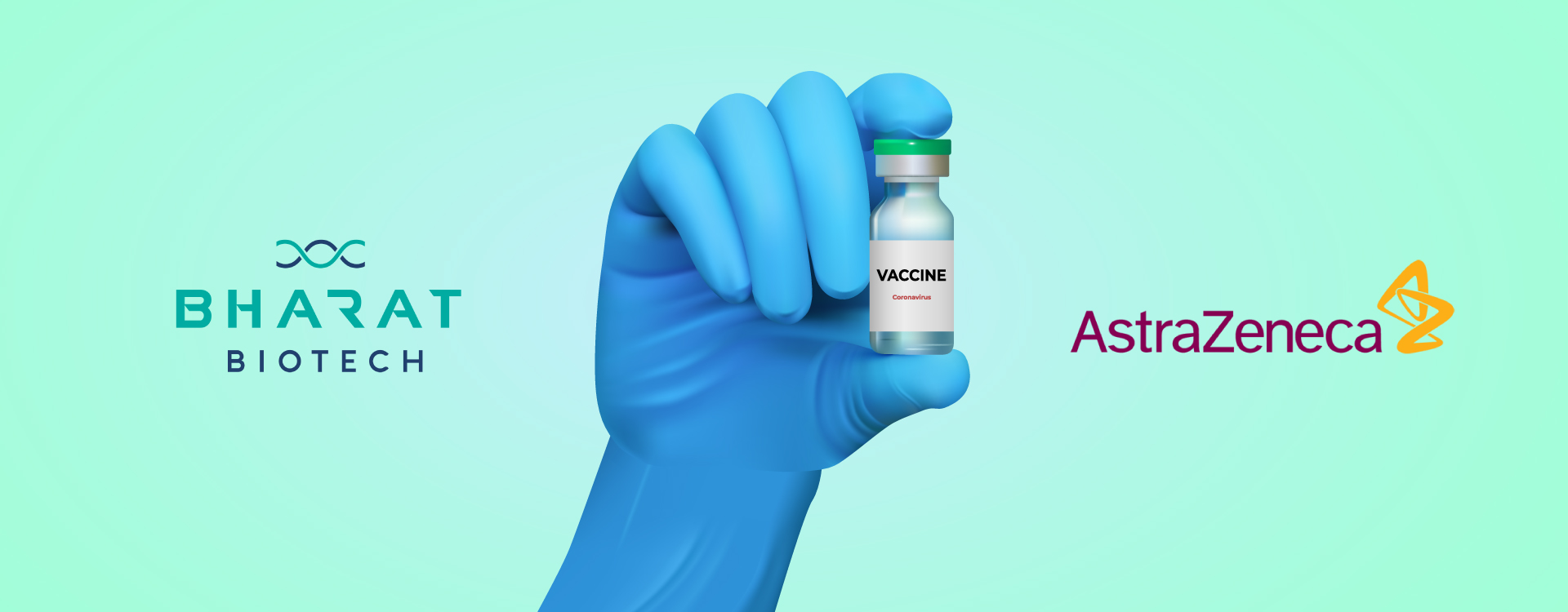After months of trials and painstaking efforts, the COVID vaccine race has finally come to an end. Amongst several players in the vaccine development including Zydus-Cadila, Hyderabad-based Biological E, Pune-based Genova, The Sputnik V vaccine candidate by Dr Reddy’s Lab and Gamaleya National Centre in Russia and another vaccine by Serum Institute of India and American company Novavax, India’s drug regulation has given the green light to Covaxin, locally-made by pharma company Bharat Biotech and Covishield (Oxford-AstraZeneca vaccine).
On January 1, 2021, the Central Drugs Standard Control Organization (CDSCO) reviewed the application of front-runner vaccine developers and granted emergency use authorization for the Serum Institute of India (SII) to go ahead with Covishield. The vaccination process began on January 6. Covishield was the first vaccine approved for public use while Pfzier and Bharat Biotech vaccines were in review. The CDSCO also looked into India’s Covaxin, co-developed by Bharat Bharat Biotech and Indian Council of Medical Research (ICMR).
Bharat Biotech International Limited, an Indian biotechnology company founded in 1996 that has previously made 16 successful vaccines and exported them to 123 countries. It is headquartered in Hyderabad, India conducts research and development in drugs, vaccines, bio-therapeutics, pharmaceuticals, etc.
Bharat biotech developed an eco-friendly recombinant and strain derived Rotavirus vaccine named ROTAVAC, India’s first and largest efficacy trial. They were also the pioneers in the development of vaccines for viral diseases like Chikungunya and Zika. it is also the first company from the developing nations to carry out human trial challenges. Bharat Biotech used a sample of the coronavirus which was isolated by India’s National Institute of Virology.
AstraZeneca plc is a British-Swedish multinational pharmaceutical and biopharmaceutical company founded in 1999. Headquartered in Cambridge, England, it produces products for major diseases including cancer, cardiovascular, gastrointestinal, infection, respiratory and inflammation.
It is amongst the world’s largest pharmaceutical companies, and has acquired several acquisitions over the past decade. In 2002, its drug Iressa was approved in Japan as monotherapy for non-small cell lung cancer. In 2014 the company received approval for Olaparib in the treatment of women with advanced ovarian cancer with a BRCA genetic mutation. In 2017, it was the eleventh largest drug company in the world based on sales and ranked seventh based on Research and Development investment. With the onset of the pandemic, they donated PPE, including 9 million face masks, to help international health organizations mitigating the COVID-19.
The Oxford-AstraZeneca COVID-19 vaccine is a medically tested safe vaccine that has no major side effects as reported during human trials. It has shown 62% efficacy when trial participants were given two full doses.
Adar Poonawalla, Chief Executive Officer, Serum Institute of India reports that they have already manufactured 5 crore doses of the vaccine and are building a stock with at-risk manufacturing and stockpiling license from the DCGI. They aim to produce 30 crore doses by July 2021.
AstraZeneca also had a licensing agreement with Serum to supply one billion doses for low-and-middle-income countries, with a commitment to provide 400 million before the end of 2020. Some of the first doses were shipped to Bhutan, Maldives, Bangladesh, Nepal, Myanmar and Seychelles. Till now, only Covishield has been exported as gifts or commercial agreements.
In its initial phase of the drive, India plans to vaccinate almost 30 crore people including one crore healthcare workers, 2 crore frontline and essential workers and 27 crores elderly above 50 years with health issues, etc. With eight COVID-19 vaccine candidates in different stages of the trial, many could be ready for being authorized for use soon.




